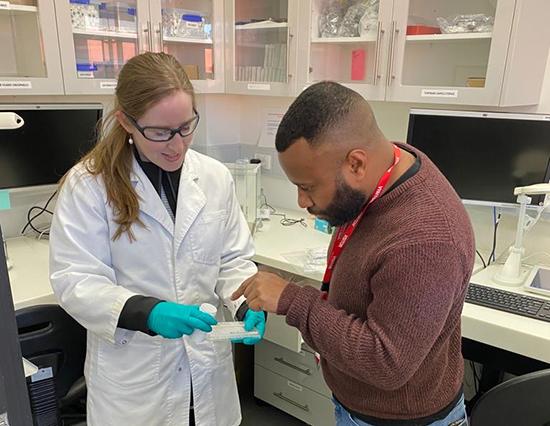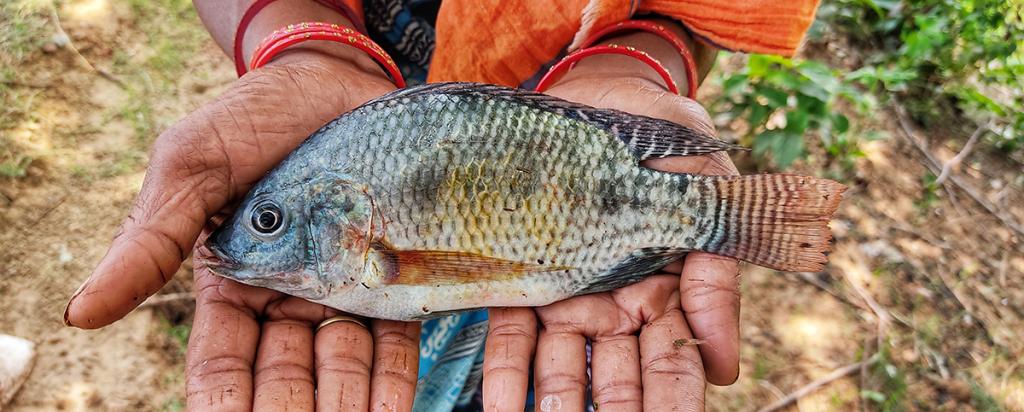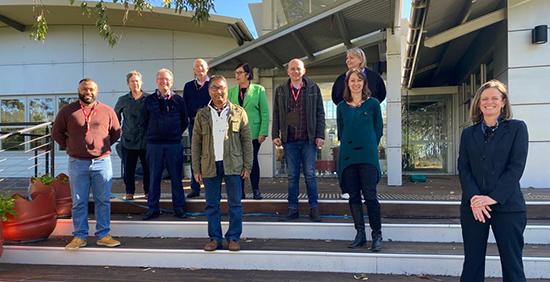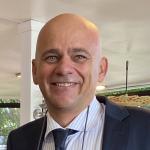

Published on the 11th August 2022 by ANSTO Staff
Researchers from UNSW, Papua New Guinea (PNG), DPI Fisheries NSW and NSW Crawford funding partners attended a meeting at ANSTO, Lucas Heights, in late July for an update on work to improve the genetically-improved farmed tilapia industry in PNG and a farmer engagement project supported by the Crawford Fund and UNSW.
Researcher Joshua Noiney, an Aquaculture Officer at the PNG National Fisheries Authority, whose study and training have been supported by the Australian Centre for International Agricultural Research (ACIAR) with a John Allwright Fellowship based at UNSW, UNSW philanthropic funding, an ANSTO FutureNow Scholarship, as well as a Crawford Fund Committee allocation, described his work to expand inland aquaculture in PNG. The main focus of his presentation was on stakeholder engagement that was funded during COVID-19 lockdowns by the Crawford Fund and UNSW.
Joshua is combining a variety of scientific methods, including isotopic and elemental profiling of fish tissue and statistics, with environmental assessments and resource management in his research. Read more
“It is imperative that we can grasp an understanding of the growth rate of Nile tilapia and the best feeding regime so that local farmers can maximise profits and better themselves,” explained Joshua.
“Specifically, my Master's project has the potential to increase fish fingerling production and directly benefit the growing industry, which supports the livelihoods of thousands of farmers and their families at home. My research on improving fingerling production is linked to the umbrella ACIAR-funded project.”
Joshua’s training and research activities have been supervised at ANSTO by Dr Debashish Mazumder and A/Prof Jes Sammut at UNSW. UNSW and the Crawford Fund are also financially supporting Joshua to capture important social impact data, produce farmer training videos, and to develop methods to collect farm production data from remote areas in PNG.
Joshua is using techniques that ANSTO developed in collaboration with UNSW and DPI Fisheries for the improvement of feed for Pacific oysters in NSW hatcheries.
“We can explore the interaction of isotopes and elements in samples of fish tissue using stable isotopes and micro-X-ray fluorescence scanning and feed to determine the precise nutritional requirements of fish in the hatchery stage,” said Dr Mazumder.
A/Prof Jesmond Sammut of UNSW, who leads an Australian Centre for International Agricultural Research-funded inland aquaculture program in PNG, explained how Joshua’s MPhil project will further help the main research program’s fight against protein deficiency problems in rural PNG through an improved supply of much-needed, quality fish fingerlings.
The umbrella ACIAR project has been improving access to fish protein, as well as improving food and nutrition security through the National Fisheries Authority’s fish in school and fish in prisons programs and a network of lead farmers and NGOs who help train farmers.
UNSW, through a generous philanthropic contribution, and the Crawford Fund, have enabled Joshua and his colleagues to share fish farming methods using various audio-visual extension methods.
"The research is led by UNSW and the PNG National Fisheries Authority with ANSTO as a key contributor providing nuclear techniques, analytical tools, and the expertise not available in PNG,” said Joshua.
The approach will help to identify feed ingredients that are not important and can be excluded from the production systems—saving money and reducing the production of waste. In particular, Joshua’s research focuses on optimising the growth and quality of fish fingerlings. Keeping the cost of farming down and optimising growth are challenges facing aquaculture globally.
The meeting was also attended by Dr Karina Meredith, acting Leader, Environment Research and Dr Suzanne Hollins, Head of Research at ANSTO. Dr Hollins provided an overview of the nuclear science and technology at ANSTO and support enhancing scientific capacities of students and early career researchers through various programs, including AINSE scholarships. Program manager and instrument scientist Patricia Gadd took participants on a tour of the elemental labs, where samples are analysed using the X-ray fluorescence scanner ITRAX.
Joshua is in Australia to strengthen his skills through additional studies and research under a Master of Philosophy program.

ANSTO proudly supports the activities of the International Atomic Energy Agency’s Sustainable Development Goals, which include ending hunger, achieving food security, improving nutrition and promoting sustainable agriculture.
Nuclear and related techniques help farmers protect the health of their livestock and improve animal reproduction and breeding practices while conserving natural resources.


